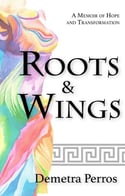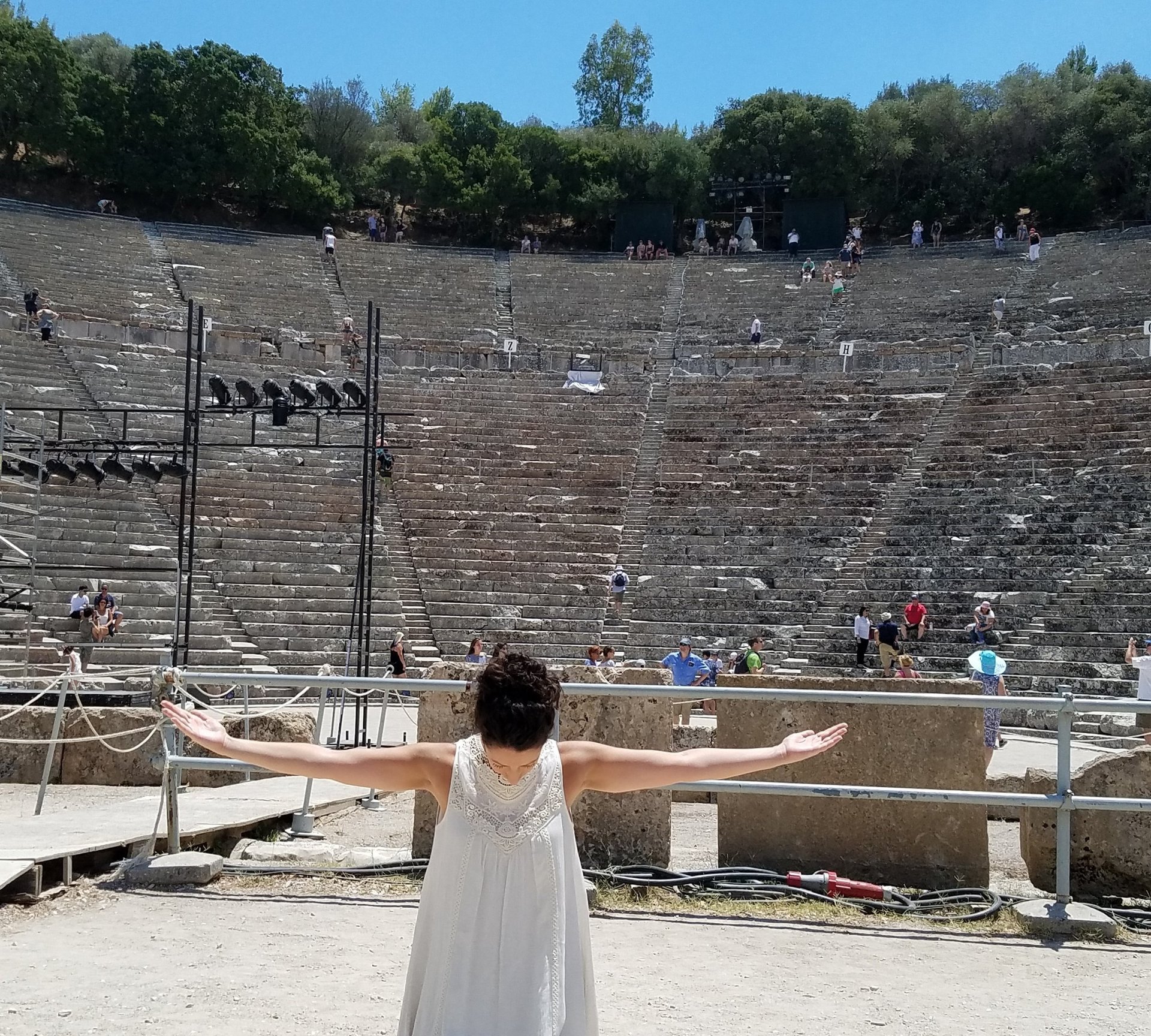
THEATRE
Take a seat, any seat. They
all have perfect acoustics.
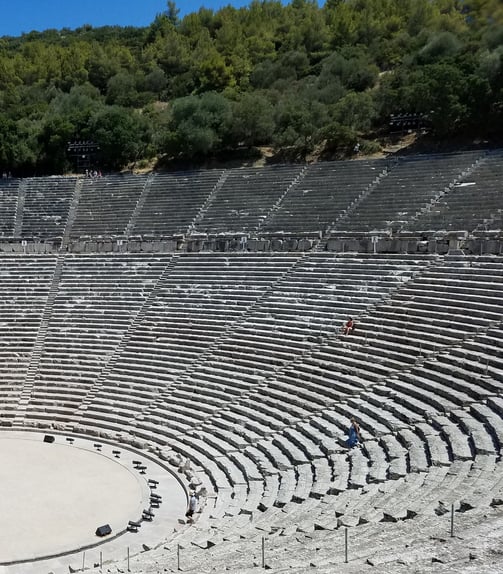

ancient origins
The restorative power of theatre is nothing new. In ancient Greece, amphitheatres were placed near sanctuaries for healing, like this acoustically perfect one in Epidavros. Beyond the stage is an expansive sanctuary dedicated to Asklepios, the god of medicine. It’s where pilgrims traveled to seek cures and comfort. It’s where evidence-based medicine began. Yes, right beside a theatre. Epidavros is a union of art and science, of surgery and plays.
communal healing
By watching plays at amphitheatres, entire villages processed loss together. Communally. Wars paused not only for the Olympics, but also for literary competitions. Can you imagine? The ancients held the secret to healing: not in isolation or silence, but in tears and laughter. Tragedies and comedies were written to intentionally provoke katharsis—an emotional release—within the audience. This katharsis was as healing as the health care being performed just beyond the stage.
Roots & Wings Onstage
How One Woman Transforms Illness into Inspiration
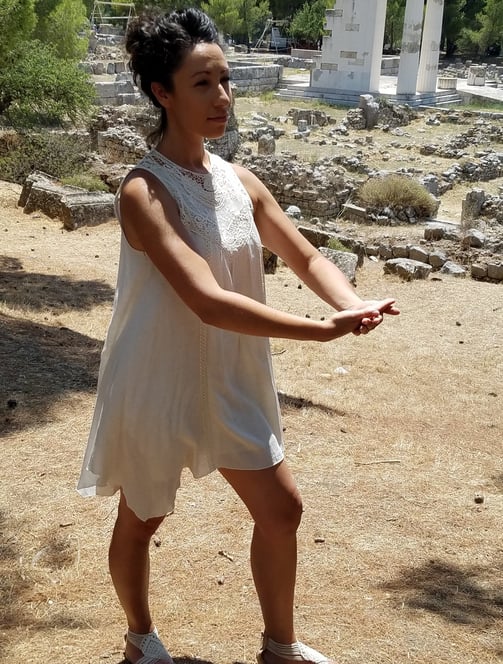

her origins
Demetra grew up onstage. At just nine years old, she began studying acting at Grandstreet Theatre with Marianne Adams, a Tony Award finalist for Excellence in Theatre Education. Soon, Demetra was coached by Julliard alumni and Broadway cast members. In college, she traveled the country seeking specialized training in movement. At Santa Clara University, she delved into modern dance and musical theatre. At the University of Hawaii in Hilo, she deepened her understanding of Hawaiian culture, hula kahiko, and hula ‘auana. Of all the styles Deme has danced—jazz, hip-hop, cheerleading, modern, Irish dance, ballet, musical theatre—hula has been the most healing.
her illness
As a teen, Deme honored the call of her seafaring ancestors by embarking on a study abroad program atop a sailing ship. On the first leg of the voyage, she fell severely ill from adverse effects of a drug meant to protect her from malaria. It wreaked havoc in her body, generating acute abdominal pain, vomiting, diarrhea, and skin eruptions. For days it worsened, misunderstood as common seasickness by the adults meant to protect her. Neglected below deck for nine days, a dismantling of the mind began. Deme’s childhood dream of sailing turned into a nightmare.
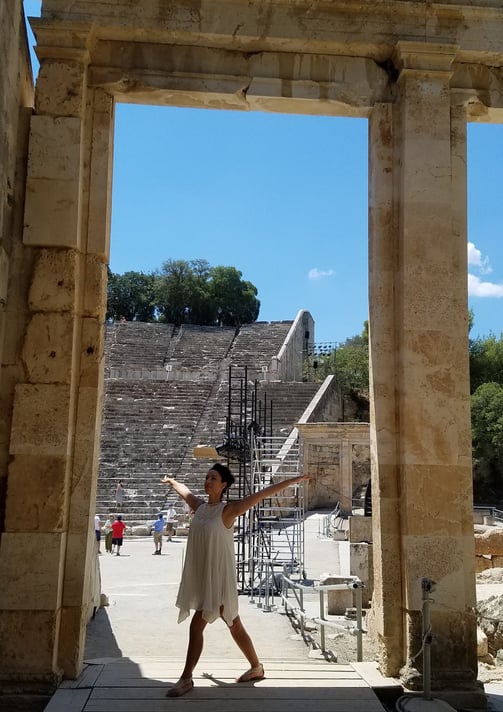

her transformation
Following the ship, Deme’s life as an active, expressive youth was replaced by chronic illness, shame, and isolation. After years of suffering in silence, she took a creative nonfiction writing course that changed the course of her life. For the first time, Demetra wrote about her invisible wounds. In her research, she found words like disenfranchised grief, ambiguous loss, and resilience. While writing helped her to recover her voice, dance helped her to reclaim her body and embrace the process of healing. Eventually, she felt her feet re-root and her spirit take flight once more. It’s only fitting, then, that she shares her story onstage.
her play
In graduate school, Demetra wrote a 300-page manuscript, which would later be transformed into a published memoir, as well as a stage play. Adapting 300 pages of narrative nonfiction down to a 30-page script, Demetra memorized 6,000 words and choreographed every step. Calling on her origins—her theatre people—she workshopped each scene with a village of actors and directors across the country. Her script was vetted by MDs, MSNs, and PhDs, and was aligned with the DSM-5. Since its premiere in 2016, Roots & Wings Onstage has toured in Montana, the Northwest, Seattle, Chicago, and Boston. Mirroring what her ancestors practiced in Epidavros, Demetra unites art and medicine to spread awareness about trauma and compassionate patient care.
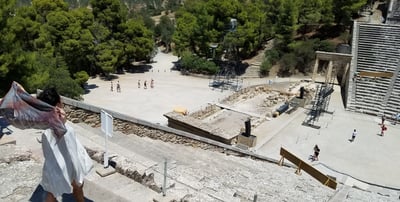

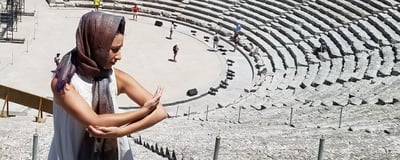

“Her performance not only entertains but also educates. It is art as advocacy, an invitation to reflect on mental health and the conditions that support patients and women.”
~ Educator, MA
“Demetra’s story gives me hope that I too can transform my life into something beautiful.”
~ Trauma Survivor


Praise
“The parallels that Roots & Wings strikes in audience members burdened with their own grief or loss evoke the possibility that healing is absolutely within our reach.”
~ Counselor, MC
“Demetra skillfully weaves visual scenes, recalled conversations, and medical studies in ways that never lose the audience.”
~ Vietnam Veteran, MFA
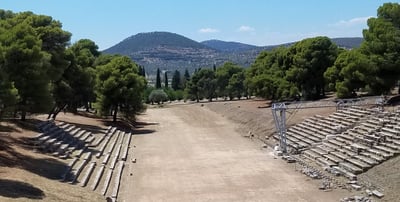

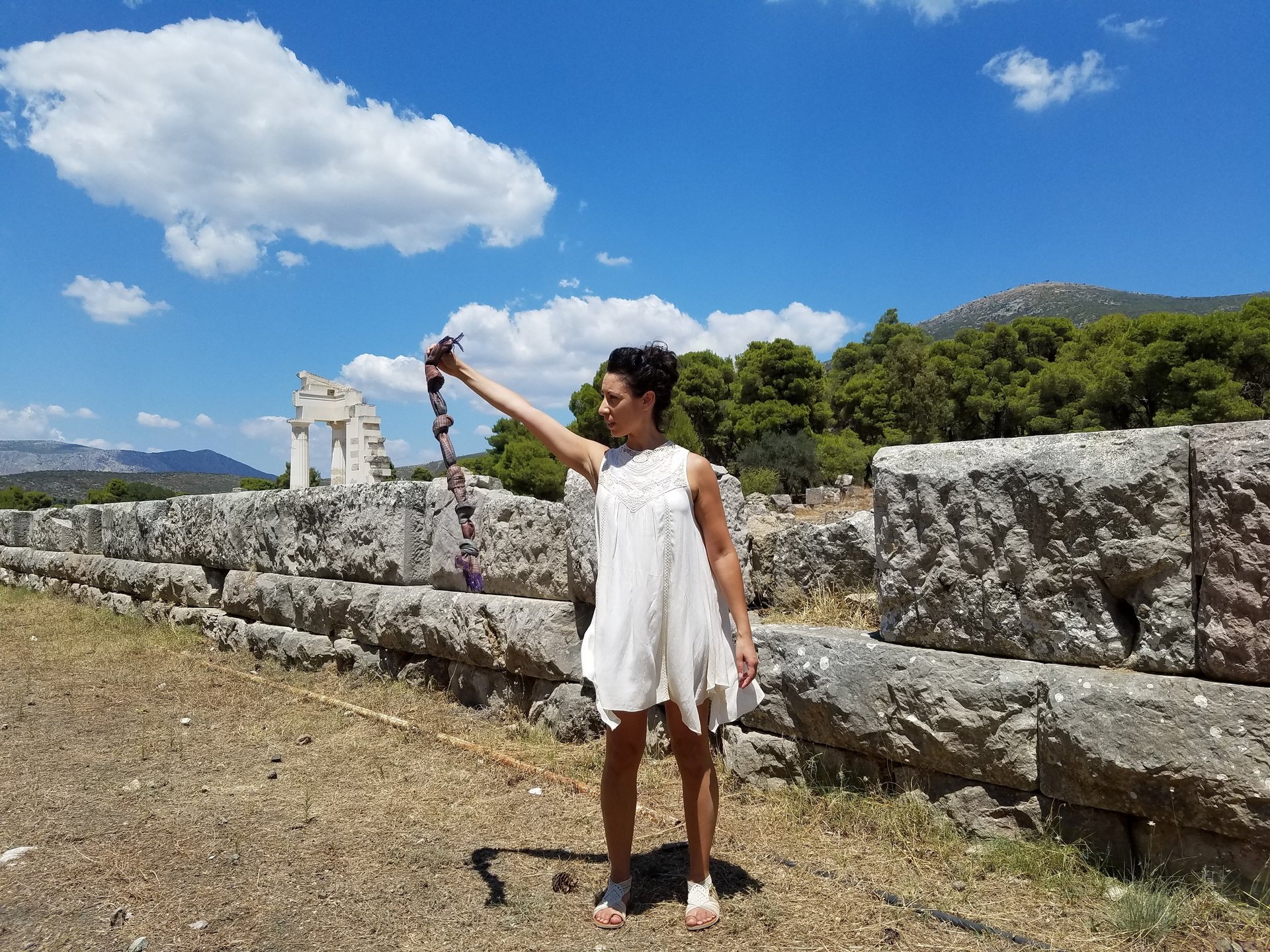
more on
DEME CREATIVE ARTS
by Demetra Perros Rivard, a Greek American author, actor, and advocate who uses theatre to spread awareness about mental health
Contact
MEMOIR
demecreativearts@gmail.com
+14064311158
© 2012–2025.
Deme Creative Arts.
All rights reserved.
© Photo Credits: Meadowlark Images.
Sally Rappold. Magdalen Powers.
Litsa Productions International.


